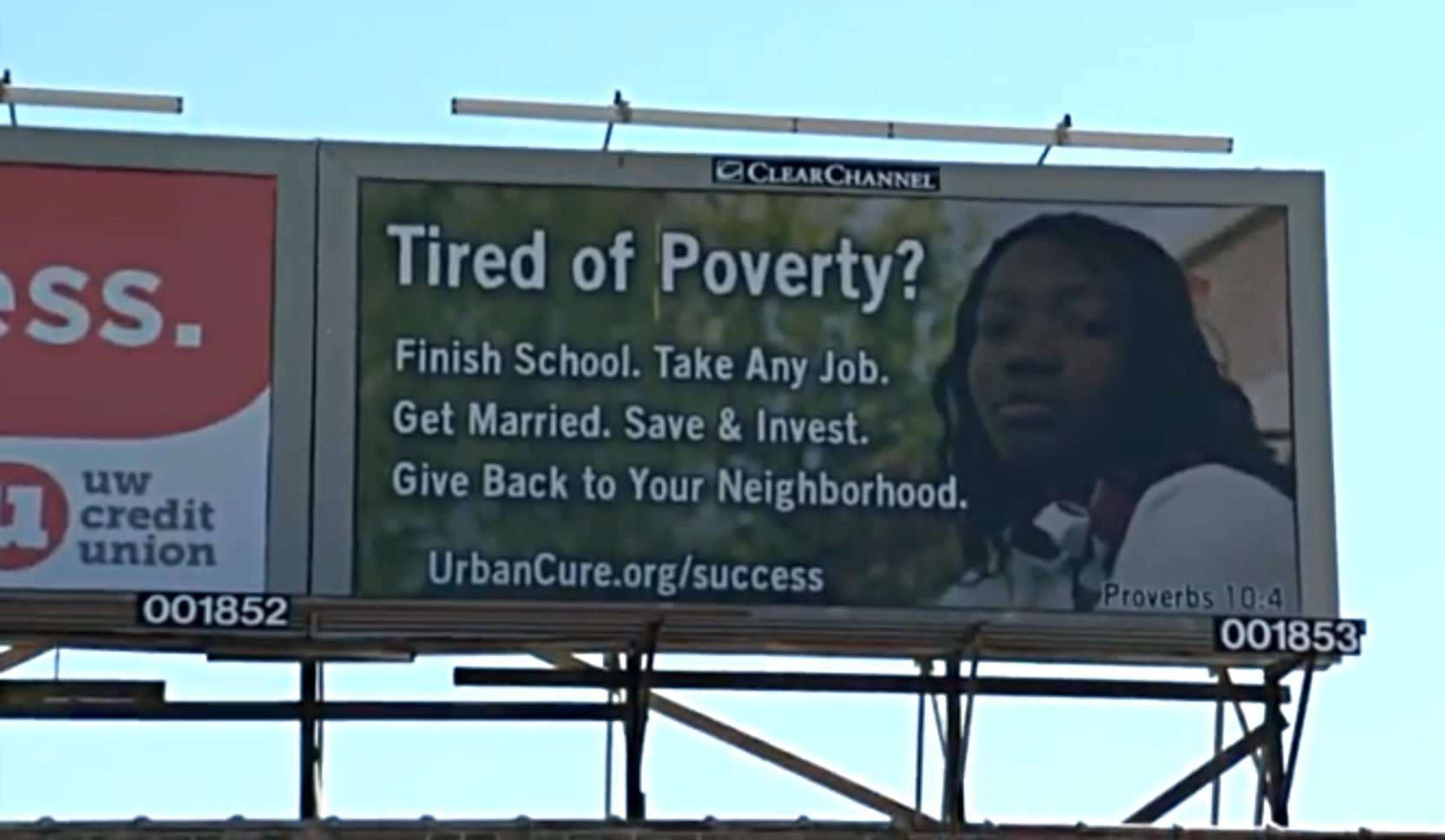As so much despair has gripped our nation during this difficult time, I decided to go into our nation’s most distressed communities with a message of hope and truth.
I have been working on policy issues dealing with race and poverty through my organization, UrbanCURE, for 25 years.
We purchased billboard space in hard-hit cities across the nation and posted a short, time-tested message that strikes at the heart of what drives poverty.
The billboards show a picture of a young black man or young black woman and say: “Tired of Poverty? Finish school. Take any job. Get married. Save and invest. Give back to your neighborhood.”
The billboard then refers to Proverbs 10:4, which says, “A slack hand causes poverty, but the hand of the diligent makes rich.”
This is a message delivered with care and love. It’s a message I know is true.
It is so true that it produced an immediate reaction from Black Lives Matter, which contacted the billboard company, Clear Channel Outdoor, demanding that the billboards be taken down.
Claims from Black Lives Matter — laced, of course, with profanity — that our message is racist, inaccurate and self-hating are a crude distortion of reality.
I know the accuracy of our message from my experience in life. I was once a young woman with disdain for the “establishment,” living off welfare and going nowhere.
Then two Christian businessmen straightened me out. Their message and guidance saved my life.
Aside from my personal experience and my daily learning as a Christian, I also know the truth of this message from years of policy work that has been going on in Washington.
The impact of the “success sequence” on poverty is well documented.
Brookings Institution scholars Ron Haskins and Isabell Sawhill published their findings in their book, Creating an Opportunity Society, in which they report that those who follow three steps — finish high school, get a full-time job and get married before having children — face a two percent chance of being poor.
Brad Wilcox and Wendy Wang of the American Enterprise Institute followed on this work, showing that among millennials — ages 28-35 — there was a 53% incidence of poverty among those who did not follow these steps and a 3% incidence among those who did.
But regardless of whether or not you want to believe me or agree with me, what about freedom of expression?
What about the inherent importance of keeping dialogue open and free in our nation, with a goal of reaching truth? How can shutting down communication serve anyone’s interests?
Shutting down dialogue, shutting down free and open exchange of ideas, is exactly what Black Lives Matter wants. It said as much in a Facebook post to the billboard vendor that read, “At the end of the day, messaging and narrative control is priceless.”
Unfortunately, Clear Channel Outdoor responded to the intimidation of Black Lives Matter and took down CURE’s billboards, saying, “We strive to respect a wide variety of viewpoints on diversity and racial sensitivity.”
But can shutting down a powerful and truthful message because Black Lives Matter doesn’t like it reflect respect for “a wide variety of viewpoints”?
The nation’s shock after the terrible murder of George Floyd at the hands of a policeman was justifiable. But the pushback unfortunately put wind in the sails of Black Lives Matter.
The question is: What does America, and what do black Americans, need? What will fix our problems?
For sure, suppression of free expression will make no one better off.
These are communities that need truth, that need love, that need empowerment.
This is the message we are delivering at UrbanCURE.
I hope Clear Channel Outdoor has a change of heart and is not intimidated by Black Lives Matter to breach contract and not publicize UrbanCURE’s message on its billboards
